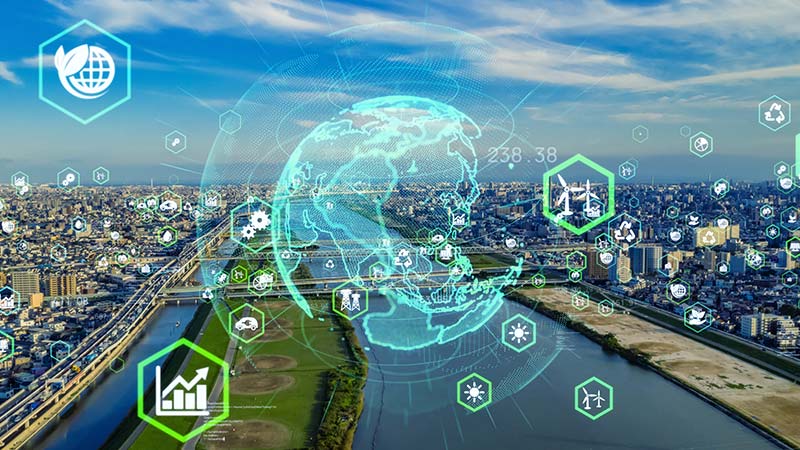5 Sustainable Startups to Watch in 2021
Sustainable products and services are becoming increasingly popular. Worldwide, the green technology and sustainability market is projected to grow from $11.2 billion in 2020 to $36.6 billion by 2025, at a compound annual growth rate of 26.6%. Several factors are driving this growth, including more awareness of environmental issues and increasing consumer and commercial interest in clean energy.

All of this presents plenty of opportunities for green or sustainable startups, which use cutting-edge technology to create innovative products and provide services that are good for the environment. At the same time, sustainable startups face challenges that startups in some other markets don’t. In particular, many consumers expect them to focus on environmental and social concerns as much as making a profit, placing these startups at a potential disadvantage compared to companies in other industries that can focus solely on growth.
Below, we profile several sustainable startups that have the potential to make the world greener for all of us.
Energy Vault ($130 Million in Total Funding)
Switzerland-based Energy Vault says it has created the world’s only cost-effective, utility-scale gravity-based energy storage system that doesn’t depend on specific topography above ground or geology underground. Chemical batteries – the primary way people store energy today – degrade over their lifespan and ultimately have to be disposed of, which can introduce toxic waste into the environment.
By contrast, Energy Vault’s sustainable alternative lasts 30 to 35 years in the field, provides round-trip efficiency between 80% and 90% (competitive with batteries), and is much cheaper per kilowatt-hour than the hydro energy storage solutions on which the company’s technology is based. The gravitational energy storage system works by using cranes to lift, swing, and lower massive concrete weights to store and release energy. The company has already been asked to build a 5-megawatt commercial demonstration project in Switzerland. It also has partnered with Enel Green Power to incorporate that company’s decommissioned wind turbine blades into the weights that operate Energy Vault’s system.
Green Li-Ion ($3.5 Million in Total Funding)
Although battery alternatives like Energy Vault’s are being developed, batteries will remain the primary way people store energy for some time. Green Li-Ion, based in Singapore, has invented the world’s first deep clean technology that fully recycles lithium-ion batteries. These batteries store more energy and weigh less than the lead-acid variety, but they’re currently too expensive to recycle and contain toxic materials. "For two decades, lithium-ion batteries of the kind you would find in laptops, smartphones, and now electric vehicles have been our preferred source of portable energy," CTO and co-founder Reza Katal told Business Insider. "But the sad reality is that with a lifespan of only one to three years, 95% of these batteries end up as dangerous landfill."
Green Li-Ion has developed a process that it says can make recycling lithium ion batteries faster and cheaper, allowing the manganese, cobalt, nickel, and other metals in old batteries to be extracted and used in new ones. The company’s technology could make lithium-ion batteries much more practical and environmentally friendly until alternative energy storage solutions are found.
AMP Robotics ($74.5 Million in Total Funding)
Other companies are also trying to improve how we recycle various materials. One of them is AMP Robotics, a Colorado-based company that creates artificial intelligence (AI)-based robotic systems that can sort recyclable materials much better than current technologies can. The Environmental Protection Agency says that US cities produced some 262 million tons of waste in 2015. While much of this was recycled, the recycling process could benefit from automation – so much so that the market for waste-sorting robots is projected to total $12.26 billion by 2024.
AMP Robotics uses proprietary, AI-driven robots to sort recyclables faster and cheaper than humans can. Plus, the robots can be adapted to sort almost anything that’s recyclable – including trickier materials like mixed plastics and bricks – and incorporated into recycling centers’ existing workflows. Everyone likes the idea of recycling, but AMP Robotics is set to make it much more practical. “Plastics, metals, and paper all have real value, [but] the problem is that the cost of sorting erodes away that value,” says Carling Spelhaug, senior public relations and marketing communications manager at AMP Robotics. “If you reduce the cost of sorting, the margin you can extract on all those materials increases and you naturally find an incentive to capture that material. That’s exactly what our technology does, and how we pursue our mission of enabling a world without waste."
Cultured Decadence ($1.6 Million in Total Funding)
Sustainable eating is just as important for the environment as sustainable energy and recycling. Enter Cultured Decadence, a company based in Wisconsin that aims to disrupt the seafood industry – notorious for depleting the oceans at an unsustainable rate – by creating the first cell-cultured lobster meat in North America. The meat is grown in a safe, controlled environment in a nutrient-rich solution. The resulting product tastes like the real thing, is cheaper and more nutritious than seafood from a store, doesn’t have shells, and doesn’t rely on unsustainable fishing practices. The company eventually plans to expand to other types of shellfish.
"The way we engage with animals as a food source needs to change if we are to thrive as a planet," CEO John Pattison said in a press release. "Our team is at the forefront of that change as we build the future of seafood a thousand miles from the nearest ocean. We are pleased to partner with an experienced group of investors that share our vision and are eager to accelerate our technology to bring transformative seafood products to market."
Goterra ($6.9 Million in Total Funding)
Plenty of other companies are getting into the sustainable food market as well. One of them is Australian firm Goterra, whose modular, decentralized, automated waste management units use maggots to consume food waste where it’s produced and convert it into useful products. According to the company, the world produces some 2 billion metric tons of food waste every year, a figure that’s set to grow 19% by 2050.
Goterra’s maggot-driven decomposition process is fully automated and conducted in self-contained capsules. Machines then transport, process, and heat-treat the waste, after which robots remove the maggots while keeping them alive for further waste munching. The company’s process turns food waste into protein for use in pet food and animal feed. It also produces high-quality soil fertilizer. The waste management capsules can be located anywhere enough food waste is generated to make them worthwhile, such as restaurants, farms, hospitals, and hotels. “Not only does [our process] disrupt the logistics of traditional waste management, it also creates highly sustainable insect protein from material that would otherwise go to landfill,” says Bob Gordon, head of growth for Goterra. “We are radically reducing the impact of managing food waste as well as producing low impact protein which can be used to replace high impact proteins such as meat and soya.”
About the Author

An analyst of global affairs, Adriaan has an MSC from Oxford, with diverse interests in the digital economy, entertainment, and business. He is a specialist trainer in advanced analytics and media.
Startup Resources
- Learn more about Startups
- Visit the TRUiC Business Name Generator
- Check out the TRUiC Logo Maker
- Read our Business Formation Services Review
- Find Startup Ideas
- Explore Business Resources
Form Your Startup
Ready to formally establish your startup? Click below to read our review of the best business formation services!
Best Business Formation Services